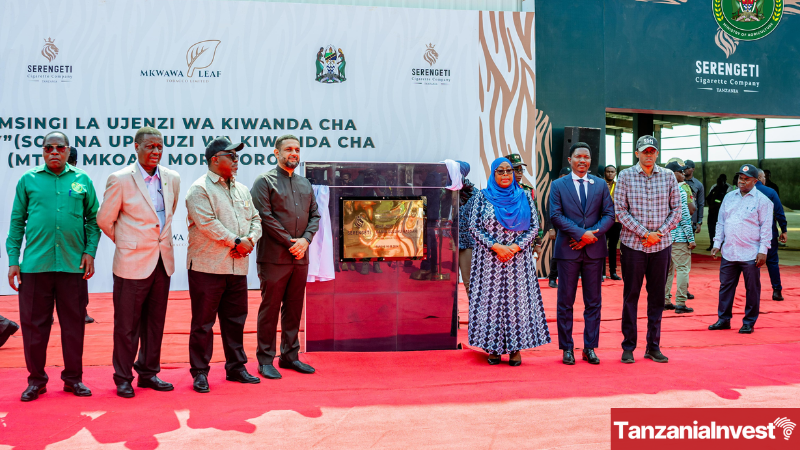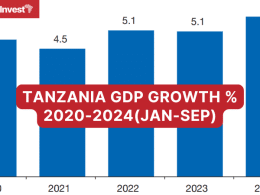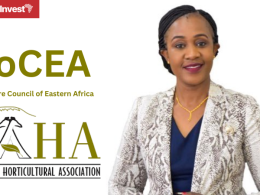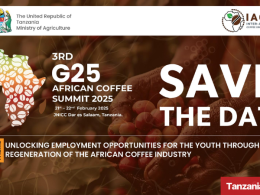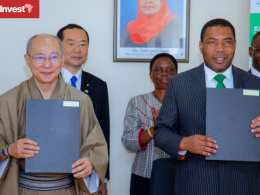On 6th August 62024, Tanzanian President Samia Suluhu Hassan inaugurated a new $300 cigarette processing factory in Morogoro.
The project, spearheaded by the Serengeti Cigarette Company (SCC), aims to transform Tanzania into a key player in the global tobacco market while providing a reliable market for local farmers.
The new factory is expected to boost the country’s tobacco processing capacity significantly. It will work alongside the Mkwawa Leaf Factory, which is undergoing an expansion to increase its green leaf processing capacity from 80,000 tonnes to 200,000 tonnes per year.
The new factory is also expected to create 12,000 jobs, both permanent and seasonal, and further increase the demand for local tobacco leaves.
Additionally, the company is promoting environmentally friendly practices by encouraging farmers to dry their tobacco in the sun rather than using wood-fueled curing barns.
This expansion is part of a broader initiative to enhance Tanzania’s position in the global tobacco industry and ensure a steady market for Tanzanian tobacco farmers.
The Mkwawa Leaf Factory had previously faced financial difficulties and regulatory challenges, including fines totaling TZS 2 trillion imposed by the Fair Competition Commission and the Tanzania Revenue Authority.
However, since President Hassan’s administration took office in March 2021, efforts to revive and expand the tobacco processing industry have been prioritized, including the annulment of these fines.
During the inauguration ceremony, Tania’s Minister of Agriculture Hussein Bashe stated, “This initiative is a game-changer for our tobacco industry. By increasing our processing capacity, we are not only adding value to our exports but also creating numerous job opportunities for Tanzanians.”
For his part, Ahmed Huwel, owner of the Mkwawa Leaf Factory, added, “We are committed to supporting local farmers and enhancing the quality of Tanzanian tobacco. Our advanced processing techniques will ensure that our products meet the highest international standards.”
Tanzania Tobacco Industry
Tanzania’s tobacco industry has experienced significant growth and transformation in recent years. The country’s tobacco production surged to 122,858 tonnes in the 2023/2024 period, making it the second-largest producer of tobacco in Africa, following Zimbabwe.
Tobacco is produced by both large-scale and small-holder farmers in Tanzania, with small-holder farmers producing more than 50% of the crop. Tobacco farming is concentrated in the central-western part of Tanzania, particularly in the Tabora region.
Tanzania is a significant exporter of tobacco, with the crop representing between 30% and 35% of national exports each year. In 2023-2024, the country earned $316 million from tobacco exports. The fastest-growing export markets for raw tobacco from Tanzania between 2021 and 2022 were Belgium, Poland, and South Korea.





